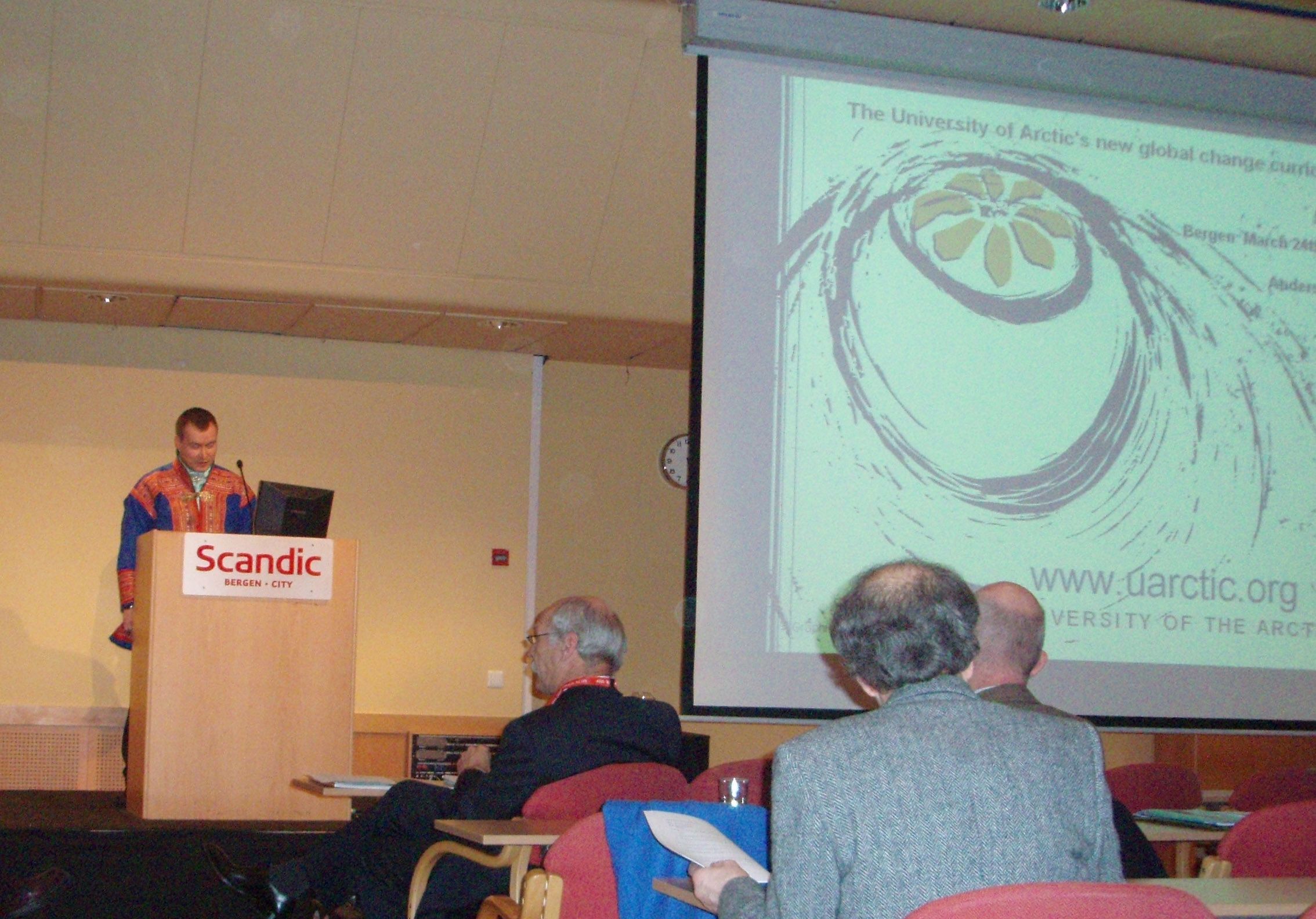
The new global change curriculum consists of the following Master’s level courses:
Adaptation to Global Change in the Arctic (Prof. Svein Mathiesen, International Centre for Reindeer Husbandry & Sámi University College, Norway).
The aim is to provide students the understanding of effects of climate variability and change on society and nature, and to what extent institutions and governance constrain, or create opportunities to cope with and to adapt to the effects of global change in the Arctic. Adaptation could be defined as adjustment in ecological, social, or economic systems in response to actual or expected climatic stimuli and their effects or impacts. The students will learn to recognize that the ability to adapt to change, is based on knowledge embodied in the language, local institutions rural or not and the actions of individual persons and their local experience.
Arctic Economies and Livelihoods in a Changing World (Dr. Joan Nymand Larsen, Stefansson Arctic Institute, Iceland)
The course has five themes: Characteristics and challenges of Arctic economies in a time of global change; Arctic resources, ownership and control; Industrial development and the economy of the North; Economic instability, vulnerability and viability of the Arctic; and Global change and human development in the Arctic. Lessons will be applied to understanding and predicting the consequences of global change to the Arctic at different scales. Students will learn to assess and analyse problems and solutions to different potential problems and opportunities facing Arctic residents and their communities within the context of global change.
Health, security and well-being in the North (Prof. Arja Rautio, Centre for Arctic Medicine, University of Oulu, Finland)
Main themes of the course are global/climate change, family and gender issues, health and well-being, dietary factors – food change – effects on health, risk factors, inequality and violence, social and health status changes and, health prevention. Students will learn the current characteristics of health, security and well-being in the Circumpolar North and their backgrounds. They will understand future challenges of health, security and well-being in the Circumpolar North in the context of globalization, and have learned some means to deal with them and are motivated and capable to seek means to increase health, security and well-being.
Institutional Dimensions of Global Change (Prof. Alf Håkon Hoel, University of Tromsø, Norway)
Important areas of global change are in the realm of the environment (climate change, biodiversity loss), in the economic realm (increases in trade and investments), and the political in terms of ideas for governance (democracy). The manifestations of global change raise issues of how these changes can be responded to and made subject to governance. International efforts to combat climate change and regulate the global economy are examples of this. In most cases, such impacts and institutional responses to them have great significance in the Arctic region. The course provides an overview of major trends in global change and discusses the institutional responses to change. Thereby students will develop an understanding of the way institution
